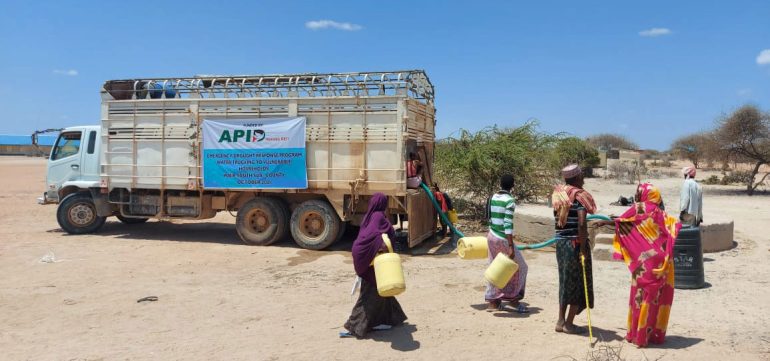
As an indigenous organization,
We are there – Before, during and after emergencies,
In the humanitarian set up we believe it’s time to do things differently. Protracted crises, climate change, conflicts and fragility are the new normal. The existing humanitarian system simply wasn’t built to cope. At APID we envisage a new humanitarian action and seek innovative approaches capable of meeting today’s challenges.
Many in the horn of Africa in which we work are highly vulnerable to emergencies and shocks as a result of conflict and natural disasters. The number of complex and protracted emergencies is increasing. As a result, more people than ever are vulnerable and need humanitarian support. These vulnerabilities are unfortunately likely to increase in coming years as the effects of climate change worsen.
Humanitarian work is central to APID’s mission. We stand with communities’ right from disaster through to recovery and building back. We do it by working with local people, partners, governments and the UN, with funding from a whole range of international and private donors. Working together with others enables us to prepare for and respond to emerging challenges in a variety of fragile contexts across the horn of Africa.
In emergencies, APID responds to save lives, with special attention to the most vulnerable and marginalized. APID’s humanitarian response includes preparedness and early action, emergency response, recovery, and works to strengthen future resilience
APID’s staff, Community resource persons and volunteers have the experience and swiftness to meet the ever-changing needs of populations in vulnerable situations. We partner with them to develop a strategy for the future and create more enduring pathways to stability.
Our work in humanitarian settings focuses on four key sectors:
- Food Security and Livelihoods,
- Water Sanitation and hygiene,
- Education and Child protection
- Climate adaptation and Environmental protection
All the work we do in these areas is underpinned by safeguarding and protection measures that ensure groups with high vulnerability or special needs have access to critical services.
APID utilizes an integrated programming in this setup as it’s unlikely that someone living in an emergency setting has only one need. We take a holistic look at problems and potential solutions, allowing us to co-design interconnected programs to approach from multiple angles. That’s how we build resilience and sustainably improve lives.